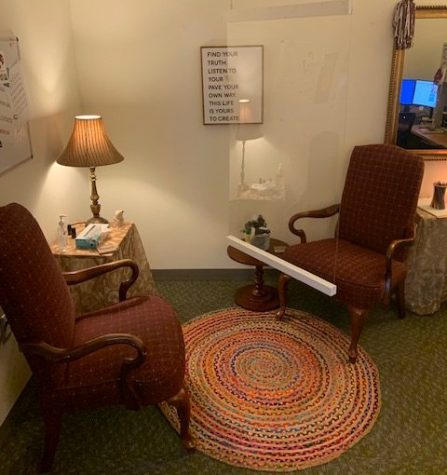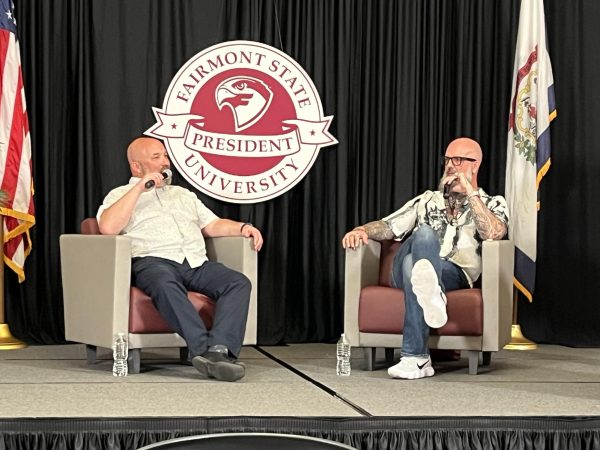Handling Stress During Finals Week
 Finals week can be a very stressful time for college students. It may be especially taxing for students at Fairmont State this year, as the Fall Semester had no breaks to stop any potential spikes in COVID cases caused by students going home for breaks. While this measure was effective in keeping faculty and students safe and healthy at Fairmont State, it has also made the semester feel very overwhelming for many, as they have had no time to relax for an extended amount of time since classes began. With finals coming up, stress may be at an all-time high. The Counseling Center at Fairmont State can provide some ideas to manage any stress that comes from or is magnified by finals week.
Finals week can be a very stressful time for college students. It may be especially taxing for students at Fairmont State this year, as the Fall Semester had no breaks to stop any potential spikes in COVID cases caused by students going home for breaks. While this measure was effective in keeping faculty and students safe and healthy at Fairmont State, it has also made the semester feel very overwhelming for many, as they have had no time to relax for an extended amount of time since classes began. With finals coming up, stress may be at an all-time high. The Counseling Center at Fairmont State can provide some ideas to manage any stress that comes from or is magnified by finals week.
Many students do not know how to handle stress because they are stuck in the mindset of just pushing through finals week and then using the Winter break to recover from the emotional and physical damage they’ve done to their mind and body. Stress is not always bad, as it can be helpful and stimulating, but too much stress can cause negative physical, emotional, and cognitive problems. Negative symptoms of too much stress include fatigue, mood swings, and difficulty concentrating.
Andrea Pammer, Director of Counseling Services at Fairmont State, has a lot of advice to offer when it comes to handling stress. Her advice when handling stress is self-care and the many ways, small and large, we can care for ourselves.
She states that there is no set way to care for oneself, explaining some small examples of ways to do self-care include, “Noticing how comfortable the warm water in the shower feels, the sound of the rain, noticing that you share the same experience with your friends during this time and feeling the sense of companionship, are possible ways to focus on something other than stress.”
Pammer also emphasizes the importance of taking care of one’s basic physical and mental needs, as they remain important even while cramming for finals. Sleep is very important for the brain and even though pulling an all-nighter may sound tempting in the moment, a sleep-deprived brain cannot function as effectively, since information is harder to encode and harder to recall when lacking sleep. Pammer acknowledges, though, that cramming may be a necessary evil in some cases for students, and our bodies are resilient enough to handle periods of intense studying with breaks throughout. It is about finding your own body’s limits and making sure to not push beyond those, as no one can learn all of the material from a three-month-long class in a night.
Pammer says, “Accept that you know what you know and that you don’t know what you don’t and take responsibility for your decisions. Keep in mind that this level of stress is temporary and that there is light at the end of the tunnel.”
This light is soon going to be reached by many students at Fairmont State, but it is important to remember to take care of oneself on that journey to the end of the semester.
Pammer offers as a final word of advice to students at this time, “ Every student admitted is smart enough to get through this – our mental attitude and thoughts towards the work are most often what gets in the way, and we have much more control over our thoughts than we think.”







